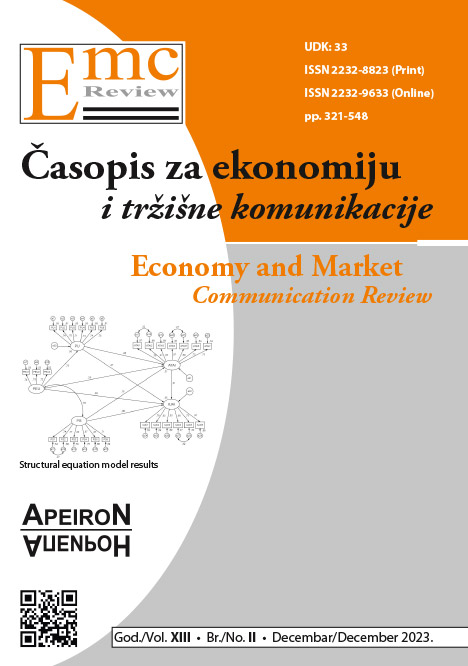CORRUPTION IN LAW ENFORCEMENT AGENCIES IN BOSNIA AND HERZEGOVINA, THE CAUSES AND CONSEQUENCES
DOI:
https://doi.org/10.7251/EMC2302475DAbstract
Corruption is a devastating phenomenon that negatively affects the work of democratic institutions at all levels, questions the rule of law, jeopardizes economic growth and prosperity, and deepens inequality and poverty. Corruption is so widespread that even the sector that should be the bearer of activities in the fight against corruption - the police, have not remained immune, which is also the case in Bosnia and Herzegovina. Given the complexity of the corruption, the aims of the research are multifaceted: to determine the causes, consequences and the perception of active police officers employed in SIPA, Republika Srpska MoI, and the Sarajevo Canton MoI of corruption committed by fellow police officers, and what type of corruption is involved in most cases; to discover the factors that prevent BiH police officers from reporting acts of corruption to competent institutions and to determine the number of reported and prosecuted criminal acts of corruption committed by police officers in the mentioned law enforcement agencies in the last five years. The method used to achieve the stated goals is both qualitative and quantitative. Qualitative method includes desk, archival, and content analysis of relevant scholarly and expert sources as well as the analysis of the reports by the Prosecutor’s Offices of Bosnia and Herzegovina, Republika Srpska and Sarajevo Canton with regards to the number of reported and prosecuted cases of corruption committed by police officers. Primary data was collected through semi-structured questionnaire, composed of relevant questions related to the presence of corruption in law enforcement agencies. The 300 respondents include police officers in all ranks employed in the mentioned law enforcement agencies. The conducted research has proven the presence of corruption, its poor reporting and prosecution, established its causes and consequences and proposed the methods of eradication.
